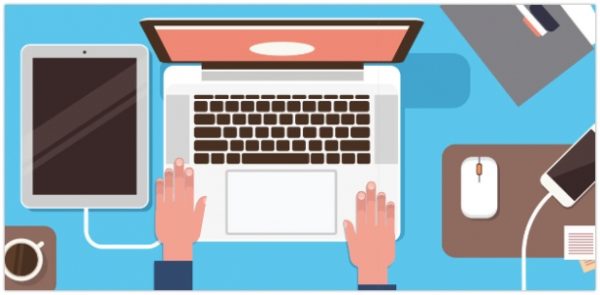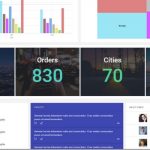Role of Adaptive Learning in Training Employees
One-on-one instruction is highly effective in corporate training, as the instructor can individualize material. Current e-learning tools often cannot provide this type of individualization. With adaptive learning, technology uses inference algorithms to adapt content to the learning needs of students based on their responses to tasks and questions. In this way, adaptive learning emulates one-on-one instruction.
Adaptive learning is the future of employee training. It collects data as employees progress through modules and uses that data to personalize goals and training content and techniques, creating an optimal learning path for each employee. The data is then stored and used by training managers to determine the effectiveness of training and change future courses so they better meet the needs of employees.
Imagine a world where adaptive learning in corporate training enabled employees to “major” in a specific subject, come across skills they never knew they had, sharpen those skills, and use them to take on more responsibility and earn promotions. This is adaptive learning’s true value.
Here’s an example: A reporter could take a course on a specific type of investigative journalism or feature writing and then show through tailored assignments and exercises, tracked via the online learning platform, that he or she obtained at least a beginner’s knowledge in those skills and is ready for the next assignment.
The adaptive learning platform’s ability to track of the performance of an employee in his or her “major” provides human resources and managers an objective measurement of whether he or she is now ready for a stretch assignment or a promotion. Just as importantly, the capability to opt for a major develops employees who are more engaged, as they are at least partially self-directing their learning and know that they aren’t being provided a one-size-fits-all training plan.
Adaptive learning also represents a step toward employers taking more responsibility for the future of their staff. Feedback and assessment loops are a significant part of adaptive learning. Becoming efficient at evaluating skills gaps can ensure that learners do not think they know more than they actually do.
Adaptive learning can help organizations make sure they are getting their money’s worth in terms of employees’ learning, applicable skills and essential knowledge. Jan Sramek, the CEO of Erudify, stated in an article for Corporate Compliance Insights that adaptive learning can enable learners to rapidly move through information they know already, cutting the time for training by almost 50 to 80 percent. This saves a lot of money for the organization.
Interpersonal skills are every bit as important as adaptive learning in the workplace. Investing time in learning these skills will not just make you a better employee, but will also make you a more well-rounded professional. While your time is precious, it’s important that it’s spent learning the things that will help you in your career. With a little brushing up on your interpersonal skills, you may find your workplace very different.
Adaptive learning solves many e-learning challenges by modeling what each learner knows and continuously, dynamically adapting his or her individual learning path. Adaptive learning has completely transformed the way organizations train their employees. Thus, the adaptive learning approach can enhance training and development programs by enabling employees to learn more, faster.
Author Bio:
Savaram Ravindra is working as a Content Contributor for Mindmajix.com and Tekslate.com. His passion lies in writing articles on different niches which include some of the most innovative and emerging software technologies, digital marketing, businesses, and so on. Follow him on LinkedIn and Twitter.












![The Most Important Elements on the Product Details Page [Infographic]](https://technofaq.org/wp-content/uploads/2017/02/The-Perfect-Product-Detail-Page-Infographic-150x150.jpg)




